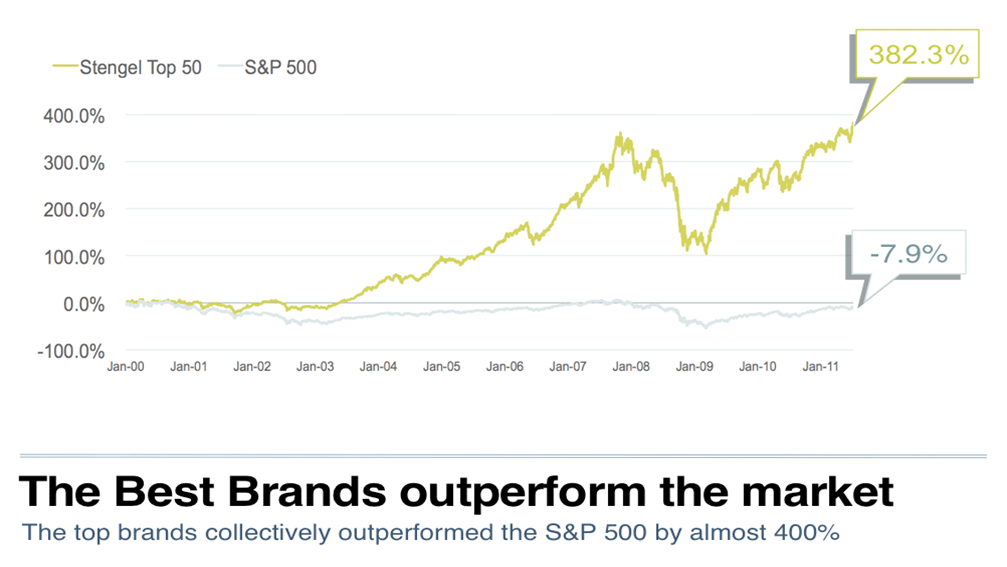Is purpose a distraction or a perquisite for brand success?
Terry Smith thinks Unilever has “lost the plot” and has hit out at the management “which is obsessed with publicly displaying sustainability credentials at the expense of focusing on the fundamentals of the business.”
Perhaps his reaction isn’t surprising given that Unilever shares have dropped about 9 percent in the past year and consequentially was one of the Smith’s Fundsmith Equity Fund’s bottom-five performers last year.
Should this be the end of marketing’s fixation on brand purpose, one of the industry’s hottest topics?
There is, as is so often the case, another side to the story.
There is a growing body of evidence that brands with a clear purpose deliver better results.
Jim Stengel, former CMO of Procter & Gamble and an advocate of purpose published findings from a major study in his book ‘Grow’
“Brands build value, whether in consumer products or professional services. Evidence suggests that over a 10 year period, businesses with clearly defined and consistently executed brand purposes deliver on average 400% better returns to shareholders”

In their “Culture of Purpose 2013 Report”, Deloitte also found that a strong sense of purpose is a proven factor in generating strong financial performance and long-term success
There are numerous studies showing that increasing numbers of people want to buy from brands whose values match their own. Acting on what they are saying still has a lag but the trends is upwards on both counts.
A 2018 study by CSR specialists Cone bears these ideas out. The survey found:
- “78% of people believe companies must do more than just make money; they must positively impact society as well”
- “77% feel a stronger emotional connection to purpose-driven companies over traditional companies”
- “66% would switch from a product they typically buy to a new product from a purpose-driven company”
Other studies from amongst others Korn Ferry, Gallup, and People Insight have shown purpose plays a key role in employee retention
The Korn Ferry study found that 90% of employees who work for purpose-driven companies report feeling engaged in their work
Another showed that 75% of companies with a clear sense of purpose are leaders in customer retention (with 75% retention rate) and the likelihood of employees staying with an organization with a clear sense of purpose is 3 x higher and those employees are 1.4 times more engaged
So how do we draw these two opposing arguments together, other than resorting to more statistics? The answer is there but not immediately apparent. Smith talks about “the fundamentals of the business” and Stengel’s results are based on brands that have “consistently executed brand purposes”
The answer isn’t ‘get a purpose’ but nor is it ‘just stick to business fundamentals’, it is about organizations that define and live up to a brand purpose but deliver it with an effective and efficient business strategy.


